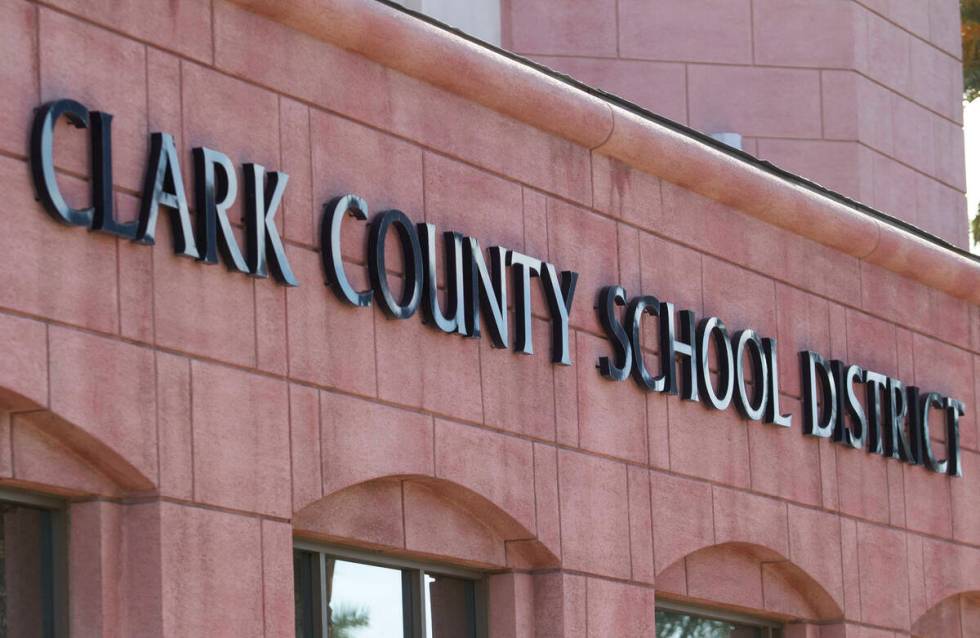CCSD estimates potential $20M deficit

The Clark County School District said on Thursday that it is facing an estimated potential budget deficit of approximately $20 million.
The estimate was included in a letter sent Thursday by the district’s interim superintendent, Brenda Larsen-Mitchell, in response to the Sept. 25 demand for answers by the state’s superintendent of public instruction, Jhone M. Ebert, about the district’s potential budgetary issues.
Ebert had asked the CCSD to respond by Thursday.
The district will present an amended final budget, which includes “amended assumptions, calculations and allocations” to the Clark County School Board on Dec. 12, according to Larsen-Mitchell’s letter.
The district had told schools in September that it had detected a potential budget deficit, which resulted in principals around the district re-evaluating and adjusting their strategic budget plans — cutting staff, programming and supply funding. In a Sept. 27 statement, the district blamed the potential deficit on unanticipated increased litigation and cybersecurity expenses.
The news came after the district had approved a record-breaking $3.4 billion budget last spring. On Sept. 27, Gov. Joe Lombardo asked the Legislative Commission to amend an audit of the CCSD to include an investigation of its budget shortfalls.
In Thursday’s letter, Larsen-Mitchell said that schools have not been asked to make up any potential central budget deficit with prior-year carry forward funds, which are unused dollars from the previous year.
“At this time, the District plans to offset any potential central budget deficit with the unassigned ending fund balance in alignment with District Regulation 3110,” Larsen-Mitchell wrote.
‘Should have been amended to fully reflect the salary increases’
The CCSD said that initially the district provided the average unit cost for each type of employee that had not been updated to meet the agreed-upon 8 percent salary increase with the Clark County Education Association, the teachers’ union.
“The District’s good-faith calculation of the averages should have been amended to fully reflect the salary increases required by the applicable collective bargaining agreements and memorando of agreement,” Larsen-Mitchell wrote.
It added that the information has now been updated.
The district also said that the data for at-risk funding was developed using free-and-reduced-lunch eligibility instead, but was corrected for fall budgets.
In a message to staff on Sept. 20, Larsen-Mitchell cited state law designed to give schools more autonomy as the reason why it had asked principals to make budget changes and cuts.
“Nevada state law prohibits the District from holding or directing schools’ carry forward funds,” Larsen-Mitchell wrote in the message to staff. “We have consistently communicated with principals who cannot absorb the changes that every effort will be made to provide assistance to those schools.”
But Ebert has said the onus should fall on the district itself, not individual schools.
“Before asking principals to redo their budgets and asking them to make cuts, the Clark County School District needs to ensure they have exhausted all other alternatives, including using unrestricted funds and reviewing central expenditures,” Ebert wrote in a Sept. 22 statement.
Contact Katie Futterman at kfutterman@reviewjournal.com